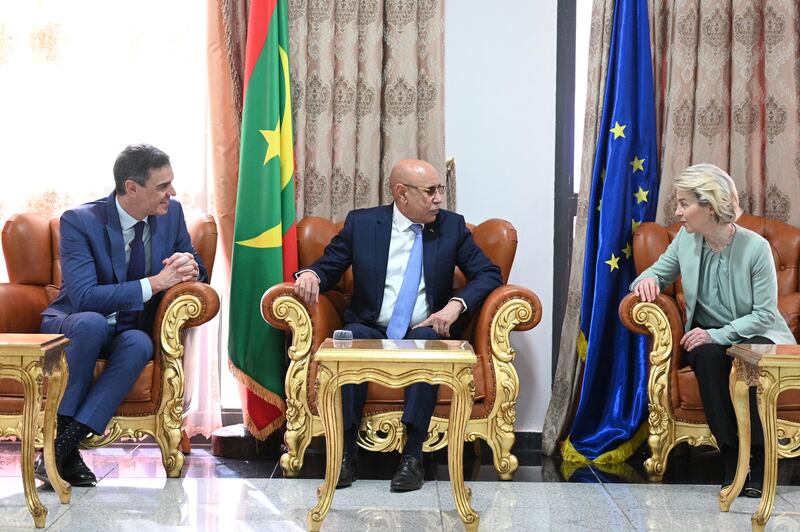The European Union and Spain together offered Mauritania a combined aid package of €512 million ($551 million) to help the north African country stem the flow of migrants trying to enter Europe illegally.
During a visit to Nouakchott on Thursday, EU chief Ursula von der Leyen said the bloc was willing to give Mauritania €200 million to tackle irregular migration to Europe, while Spanish Prime Minister Pedro Sanchez said his country would provide another €312 million.
The funds would also be used to help Mauritania support the more than 150,000 refugees living in the country, as well as for development projects, they said.
“The lack of security and economic opportunities in the region push many people to migrate, often leading them first to Mauritania and in this regard, your acceptance of approximately 150,000 Malian refugees is a source of pride for you,” Ms von der Leyen said during a joint press briefing conference with Mauritanian President Mohamed Ould Ghazouani.
Mr Ghazouani said his country was paying a heavy price for being a transit route for migrants trying to reach Europe, according to a statement on the presidency website.
He told Ms von der Leyen and Mr Sanchez that Mauritania was committed in its partnership with Spain and the EU to fully play its role in curbing illegal migration to Europe, it said.
According to Spain's Interior Ministry, about 8,000 people crossed from Mauritania to the Spanish Canary Islands in January – equal to the number who made the same journey across the Atlantic Ocean in the first six months of last year.
More than 50,000 irregular migrants reached the Canary Islands last year.
The Atlantic Ocean migration route is considered one of the most dangerous in the world. An average of five migrants lose their lives each day while attempting the crossing, according to Infomigrants, a collaboration between French, German and Italian state news organisations to track migration.
EU officials have visited several north African countries, including Morocco, Tunisia, Egypt and Senegal, in recent years to seek co-operation in controlling the flow of irregular migrants towards Europe. The bloc is seeking binding agreements in exchange for assistance packages that include economic development aid.
Their visits took place as other global players such as Russia and China attempt to establish influence in this strategically located and resource-rich region.







